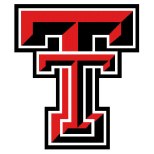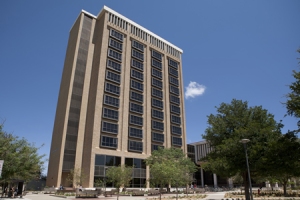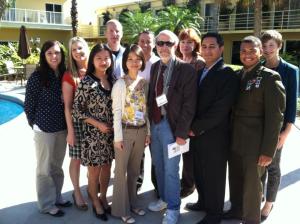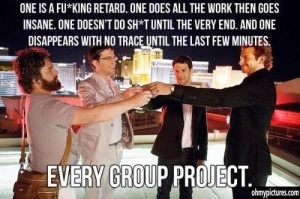
My cap (and yes, I’m still available for hire)!
Some of the first feedback I recieved when I started telling people that I was trying to go back to school to get my MBA was: “You won’t get in”… “You need real-world experience”… “Without work experience more schooling is pointless”… “That’ll be a lot of money.”
When first trying to put pen to paper (or keys to online medium) regarding the topic “why go back to business school” I couldn’t think of anything. I knew my reasons but I know people have different reasons for going back to get their MBA at different points in their lives. So, to ensure I got the full spectrum I decided to ask a few of my fellow classmates.
Our reasons span the following for pursuing our MBAs
- Hiding out from the recession
- Networking
- Opening up employment opportunities
- Because we intrinsically wanted it
Below is some of the feedback I received from my fellow MBAers:
“I had finished my degree in psychology and realized I did not want to go into counseling or research. I decided that the best way to apply the skills from psychology to the real world was to go into business and that an MBA would be the best way to break into the field.” – Jason Hebert
Bret Fredrickson was the victim of company downsizing and had found himself unemployed. He saw his options as, “Spend[ing] my time writing countless cover letters or study for a test that to this day still makes me nauseous to think about (the GMAT).” Asking Bret about how he felt about his SDSU MBA program, he responded that it has, “opened a lot of doors that otherwise would have been shut… I met a lot of great people and heard a lot of inspiring stories that lit a fire under me. I gained a deeper understanding of the gray areas in business, and acquired the confidence needed to be direct, open, and to lead successfully. An MBA isn’t for everyone, and in no way is it more advantageous than actually running a business, but for me, it was a segue that launched an array of opportunities.” Bret gained an entrepreneurial attitude and Co-Founded SoftSkate a skateboard grip tape alternative company. Follow Bret’s upcoming endeavors on Twitter!
John McMillan, known lovingly as ‘Johnny Mac’ in our program (and as the kid that doesn’t wear shoes) thought that gaining an MBA would give his resume a competitive edge and land him a killer job. What he found was “the drive to start [his] own business, because who likes making money for someone else?” John also credits the program with expanding his professional network through his, “excessive involvement with competitions and business organizations that will truly help [him] succeed in the field of entrepreneurship. In the end it’s not what you know, it’s who you know that will make you successful!” – Seriously peeps, Johnny’s on the road to greatness with his enthusiasm so watch this kid!
Courtney Koscheka was also downsized out of a job and decided to seriously act on her lingering idea of heading back to get an MBA. When asked about how she felt about her situation she replied, “They seriously did me the biggest favor. I packed up my desk, called my mom on the way home, and went straight to the post office to get my application packets in the mail. Fast forward a few years later, and I’m now in a tremendous amount of debt and feel like I’m starting at square one in the work force, but I’ve made some of the most amazing friends a girl could ever ask for. In addition, not only have I made friends, I’ve added some amazingly talented and helpful people to my ‘network.'” Courtney is also a stellar blogger like Nicole and me, so make sure you check out her blog! To boot she has some interesting news about an emerging company!
Tara Taylor, Richa Saxena, Adrienne White, Meghann Reist Boyd, and Katie Lyons all indicated a mixture of a crappy economy, wanting to bolster their resumes, open new doors, explore new opportunities, and to meet new people as the reason they decided to get an MBA. (Be sure to follow what Meghann, Katie, and Courtney are collaborating on here!)
“I swore I’d never go back to school when I finished my undergrad. My 4 year undergrad degree was the most unguided 6 years of my life. I was fortunate to have good connections and landed a career building job and started working early, so I knew I could build on my work experience. . .Later on though I began to think differently. I realized I was fortunate enough to have good work experience, but it was difficult to “legitimize” that work experience. . . So I figured the MBA would help me meet new people, get exposure to other industries and skills, and add credibility to the skills I had already developed, plus work paid for some of it. So far I have been right; I have learned some stuff in classes, but the best value I have gotten out of my MBA is the people I have met and the exposure to new things that I would not have seen otherwise.” – Ross Bundy
“I did it…[for] the accomplishment of doing it for yourself. Everything else falls into place with determination, hard work and execution.” – Alex Henry
“My mom got her master’s at SDSU when I was little; She had her diploma framed beautifully in her office and I always wanted the same thing. After working for about 5 years, I decided it was finally time to go back to school. It was a lot of long hours and hard work, but looking back it was a great experience and I now have the same beautiful diploma frame as my mom.” – Kari Evans
What we all got out of our experience was much of the same:
- Meeting great and influential people. Not only each other (and we know we’ll all end up somewhere amazing) but incredible professors that inspired us.
- Real world applications – our program was not just theoretical, and that’s essential for us trying to break into the different realms of businesses – we received a lot of applied instruction.
- Finding our passion. Whether it be to create our own company (like Bret with SoftSkate or Courney, Katie , and Meghann with CKM Events) or discovering a facet in which you’re interested in (like me with marketing!).
- Confidence. I tossed a post up on Facebook asking for help with this topic. I really expected some of these joksters to only write about the incredible debt we are in (which WAS mentioned) but the majority of the information was serious and EVERY.SINGLE.ONE. of them exuded the confidence that we will all become successful due to our obtaining our MBAs.
As a wrap-up. Every person I spoke with believes they received invaluable training in the 2 (often longer) years they spent (or are still spending) obtaining their MBAs. Besides the debt we are in, none of us would trade a second of our experience and education (well, I will say our capstone BA 795 was a bitch – more on that next week!).

Many of my classmates when we finally finished our MBAs! Obviously it was a tough road – illustrated by our glowing eyes.
Share this (c'mon you loved it!):










